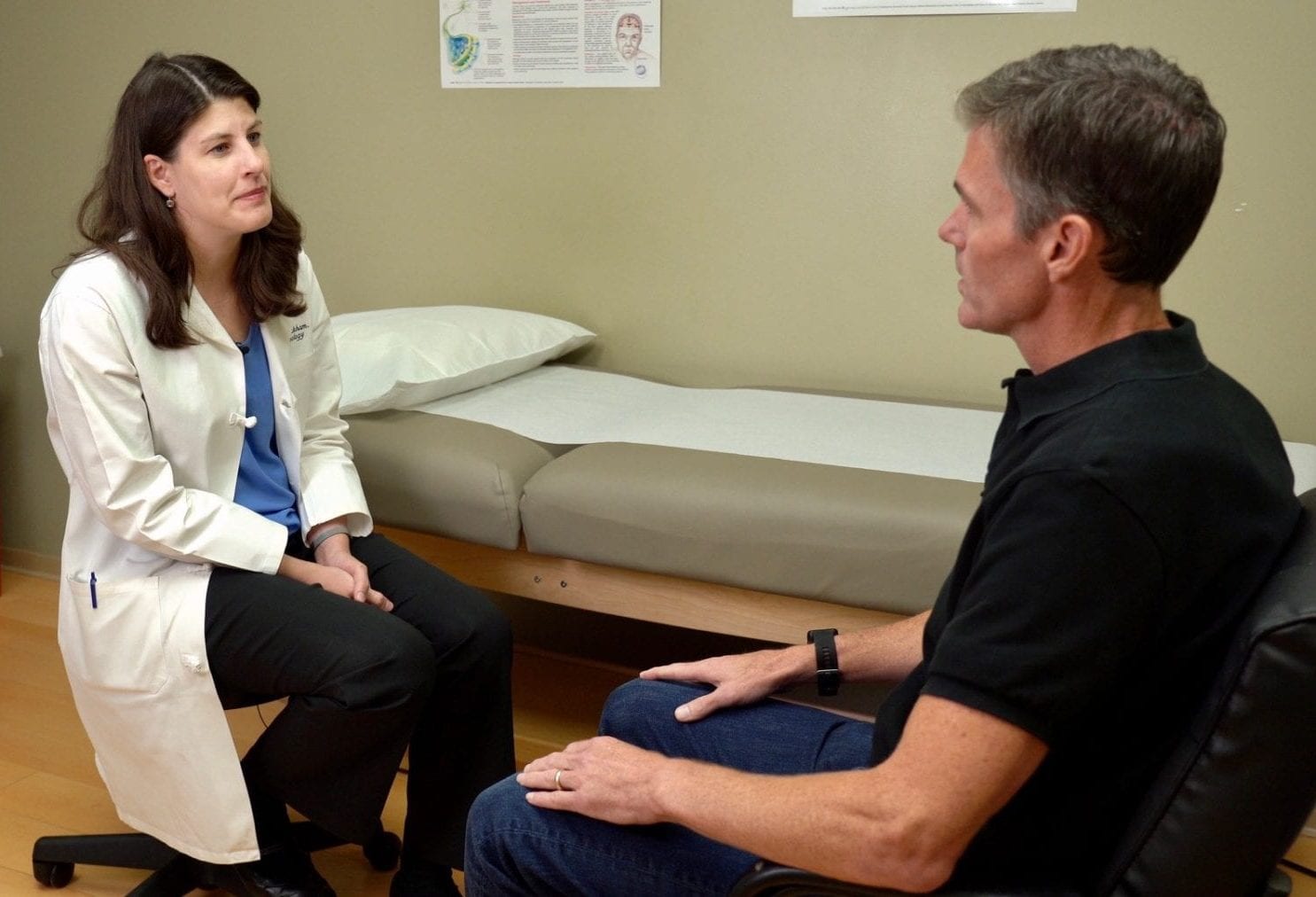
Who is Your Doctor?
Have you ever noticed that when meeting another person with Parkinson’s (PWP) it usually does not take long before one of you asks, “So, who is your doctor?”
I suspect that this familiar practice stems from there being a shortage of neurologists trained as movement disorder specialists.[1] Because the pool in many locales is small, many of us are bound to share the same doctor. More significant, these inquiries seem also to follow from recognizing our common plight, our shared questions and struggles, while simultaneously affirming our solidarity. We stand with each other, those of us whom Parkinson’s has tapped so rudely to join its club, interested in one another’s well-being, eager to offer support, and stronger by virtue of our shared experience.
As is true with many chronic illnesses, when receiving a Parkinson’s diagnosis and looking at the road ahead we do well to take the long view. In fact, we should plan for the need to manage our disease for many years, even decades, identifying and enlisting resources that will help sustain our physical, emotional, and relational health. To this end, nothing is more crucial or prudent than finding the right physicians. At their best, they stand in solidarity with us, helping us live as well as we can with what my diagnosing neurologist called “a new family member” that never leaves our presence.
Although PWPs require the care provided by a neurologist who, ideally, is a trained movement disorder specialist (MDS), we also need a general practitioner who attends to our broader health care needs. Some of us might need other specialists, too, and especially as the disease progresses.
In all of our providers, we should look for and expect to have a relationship marked by at least these three essential qualities: collaboration, communication, and compassion.
Collaboration
Every physician-patient relationship should exhibit collaboration. Literally, to collaborate means to “co-labor” or to work together. This effort entails forming a partnership, with each person relying on his or her expertise, experience, and wisdom to make vital contributions toward meeting shared goals.
The physician has expertise in medicine and clinical practice, whereas the patient has expertise in living with Parkinson’s and all the challenges this entails. The shared goal, of course, is helping the patient feel as well as possible for as long as possible.
The best physicians recognize these qualities of collaboration, value them, and uphold a commitment to them in every patient relationship. The best patients hold their physicians and themselves accountable for establishing and maintaining this unique partnership.
Communication
For collaborative care to happen, physicians and patients need to communicate openly, equitably, and effectively. Openness requires honesty and candor; we should share everything that pertains to our health care needs. Equity plays out as physicians listen to patients at least as much as they speak to them. In fact, each expert collaborator needs to listen to the other’s perspective in any office visit. The patient shares his or her successes, challenges, and needs; the physician shares his or her medical knowledge and clinical experience as part of a treatment plan. New insights present themselves as conversations and physical exams unfold.
If a physician minimizes or otherwise dismisses the importance of listening closely to her or his expert partner, communication breaks down, collaboration ends, and care suffers.
Compassion
Perhaps more important than any other quality, compassion needs to pervade the physician-patient relationship. Offering another human being compassion, a term that literally means to suffer with, must remain the foundation of medical practice.
Although current medical education emphasizes physicians developing sound capacities for compassion (and for its close kin, empathy, which means, to feel with), historically physicians have too often been encouraged to practice with a degree of emotional separation or critical psychological distance in order to remain objective and scientific in their approach. The idea has been that emotional connections risk clouding clinical judgment.
But good science and keen clinical skills go hand in hand with things like compassion and empathy, which are the opposite of separation and distance. Let us not forget that the Hippocratic Oath, which physicians affirm, states, “I will remember that there is art to medicine as well as science, and that warmth, sympathy, and understanding may outweigh the surgeon’s knife or the chemist’s drug.”[2]
As philosopher and writer Albert Camus observed, “I have no idea what’s awaiting me, or what will happen when this all ends. For the moment I know this: there are sick people and they need curing.”[3] Those who live with illness surely need curing. We also need physicians who embrace collaboration, communication, and compassion.
If your relationship with your neurologist, your general practitioner, or other provider lacks any of these essential qualities, it might be time to take the longer view and consider a new doctor.
_______
1. https://www.aan.com/PressRoom/Home/PressRelease/1178; https://news.ufl.edu/articles/2017/09/parkinsons-disease-new-drugs-and-treatments-but-where-are-the-doctors.html
2. https://www.medicinenet.com/script/main/art.asp?articlekey=20909
3. Albert Camus, The Plague (New York: Random House/Vintage Books, 1991), 127.
Photo: Vanessa Reiser
Allan Cole is a professor in The Steve Hicks School of Social Work at The University of Texas at Austin and, by courtesy, professor of psychiatry in the Dell Medical School. Diagnosed with Parkinson’s in 2016, at the age of 48, he serves on the Board of Directors at Power for Parkinson’s, a non-profit organization that provides free exercise, dance, and singing classes for people living with Parkinson’s disease in Central Texas, and globally via instructional videos. He also serves as a Community Advocate for ParkinsonsDisease.net, writing columns about living well with Parkinson’s. He is author or editor of 10 books on a range of topics related to bereavement, anxiety, and spirituality. Currently, he is writing a book on counseling people with Parkinson’s disease, which will be published by Oxford University Press.
Follow him on Twitter: @PDWiseBlog
